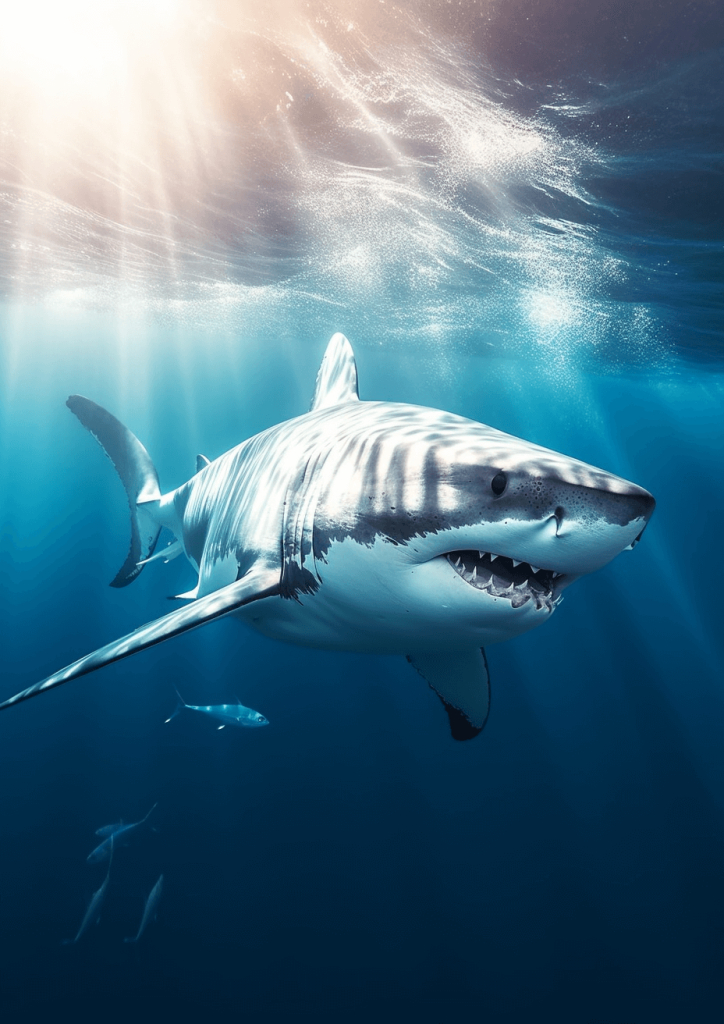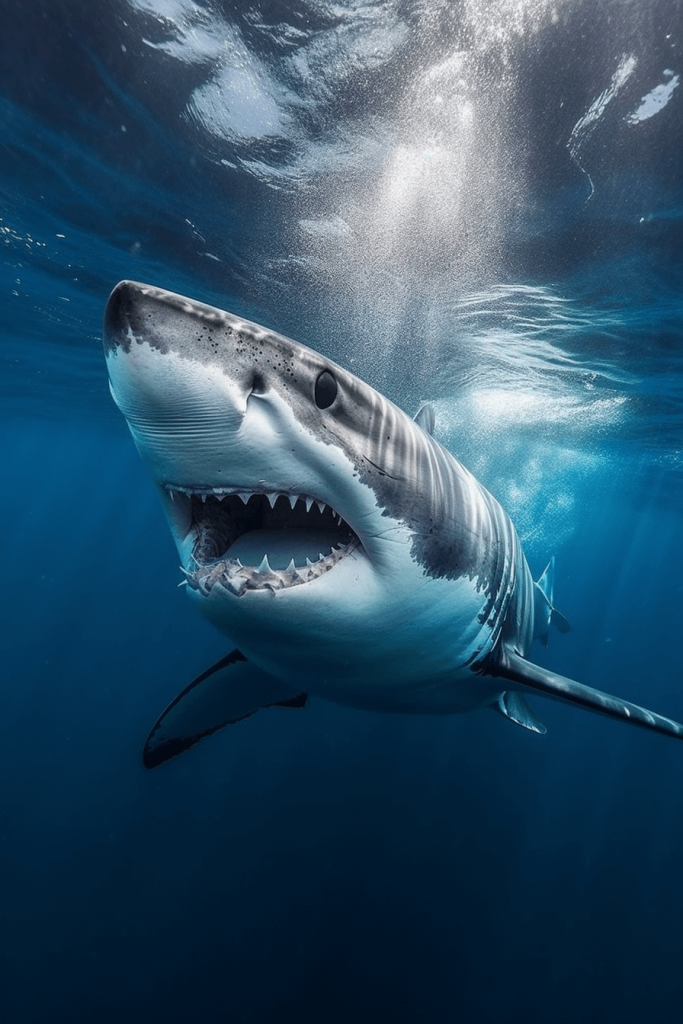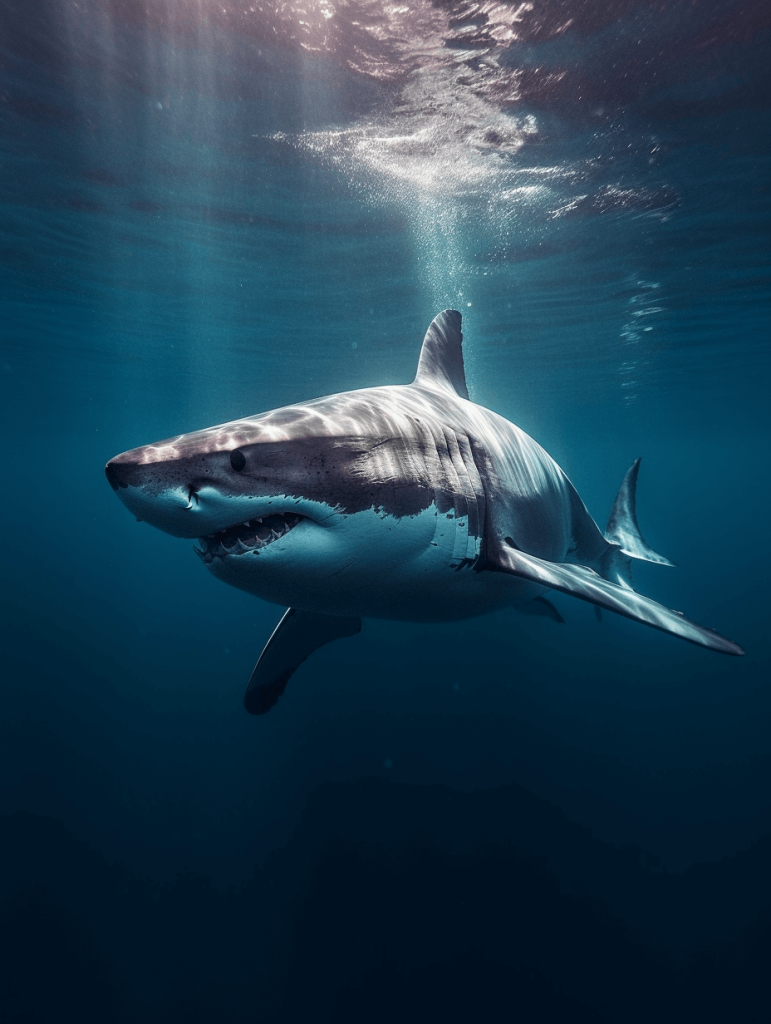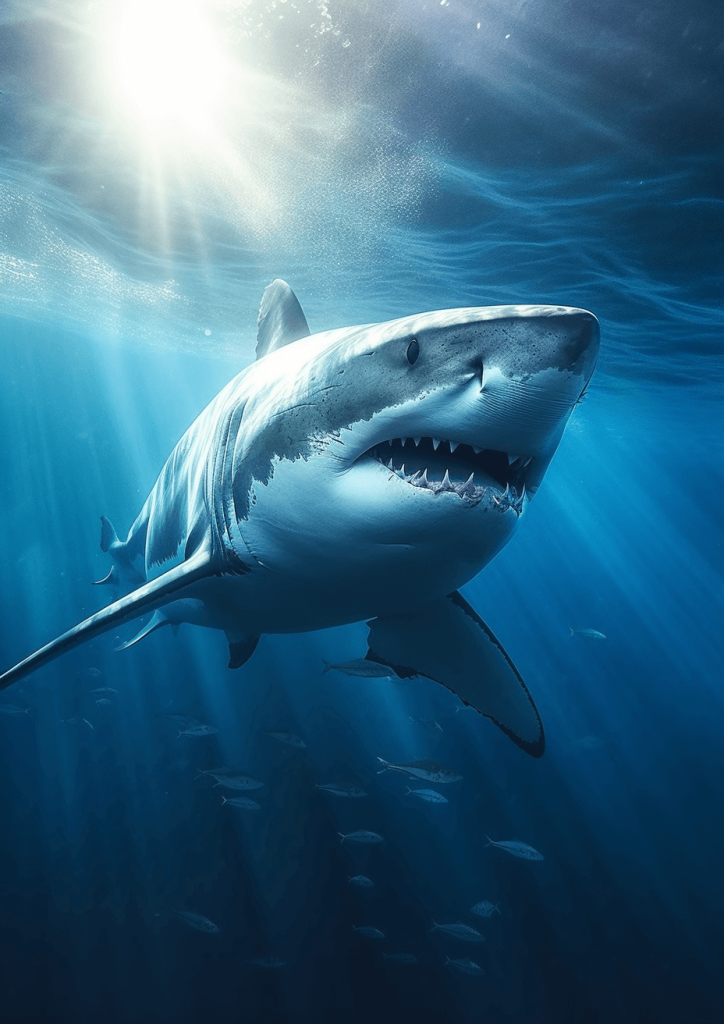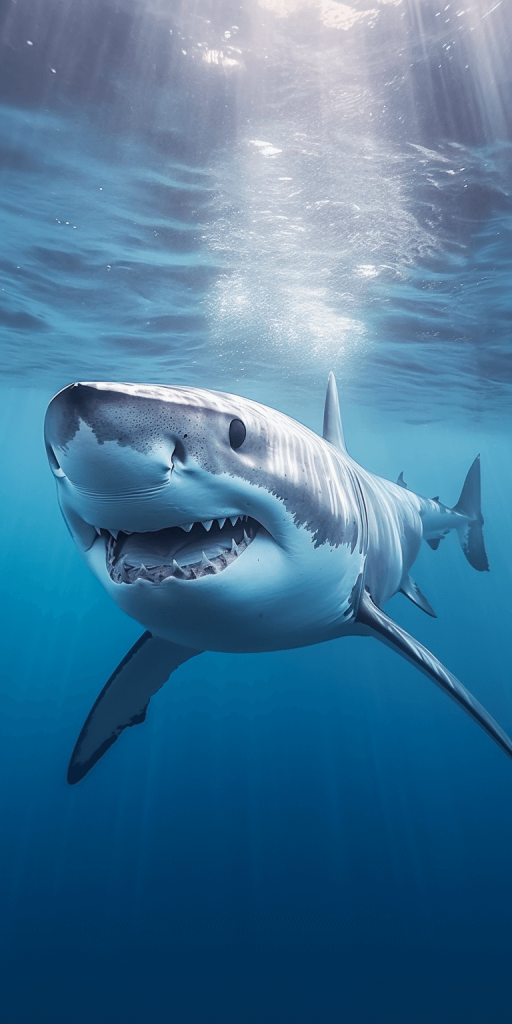The Great White Shark, often shrouded in mystery and awe, is one of the ocean’s most renowned and misunderstood creatures. Known for their impressive size and powerful presence, these sharks have long captivated human imagination and interest. Let’s embark on a journey to understand these magnificent predators, starting with a remarkable individual named Breton.
Breton: A Great White’s Remarkable Journey
Breton, a strikingly large Great White Shark, has recently garnered attention for his New Year’s appearance off the Florida coast, following a staggering 34,000-mile journey from Nova Scotia. Tracked by OCEARCH since 2020, this 13-foot, 3-inch shark symbolizes the incredible migratory patterns of his species. Breton’s travels not only highlight the vast distances these sharks can cover but also contribute valuable data to marine research, enhancing our understanding of these elusive giants.
Great White Shark Breton’s journey map:
The story of the shark, which, fitted with a GPS tracker, seemingly spent years drawing a picture … of itself
— Massimo (@Rainmaker1973) March 29, 2023
[read more: https://t.co/x55FZdEYEY] pic.twitter.com/yugzBWBNAH
How Big is a Great White Shark?
Great White Sharks are known for their daunting size. An adult Great White typically measures around 15 feet in length, but some individuals, like Breton, can exceed this, growing up to 20 feet or more. This size plays a crucial role in their hunting strategy and positions them as one of the ocean’s most formidable predators.
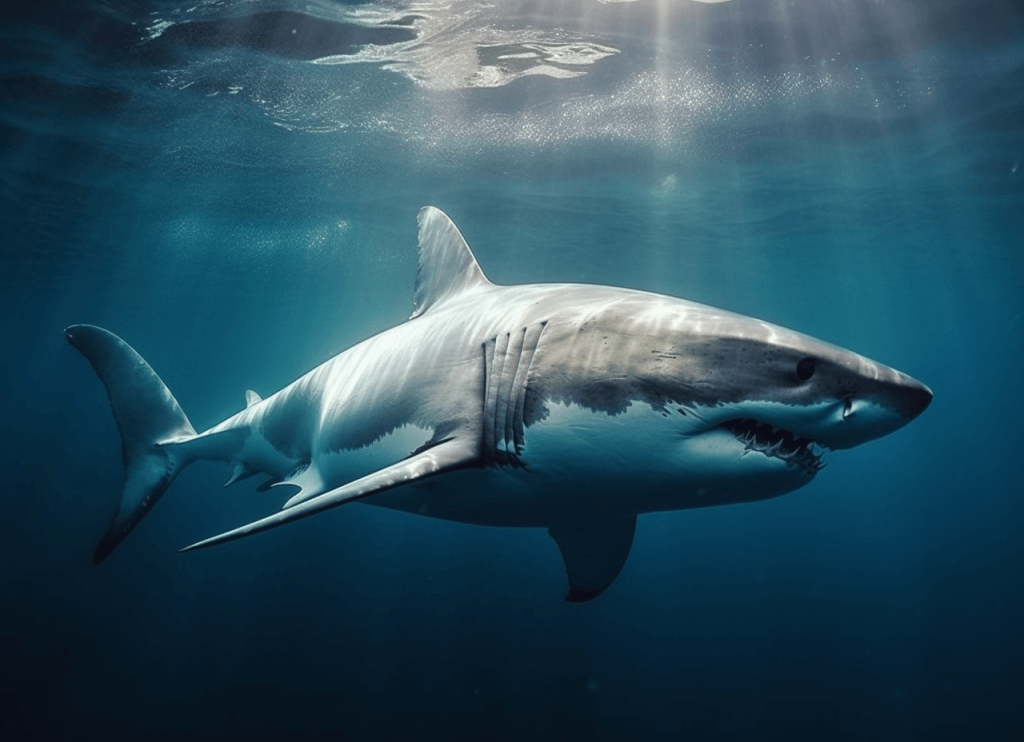
What Do Great White Sharks Eat?
As apex predators, Great White Sharks play a vital role in marine ecosystems. Their diet primarily includes marine mammals such as seals and sea lions, but they also feed on fish, rays, and occasionally other sharks. Their hunting strategy is both powerful and precise, making them highly efficient hunters.
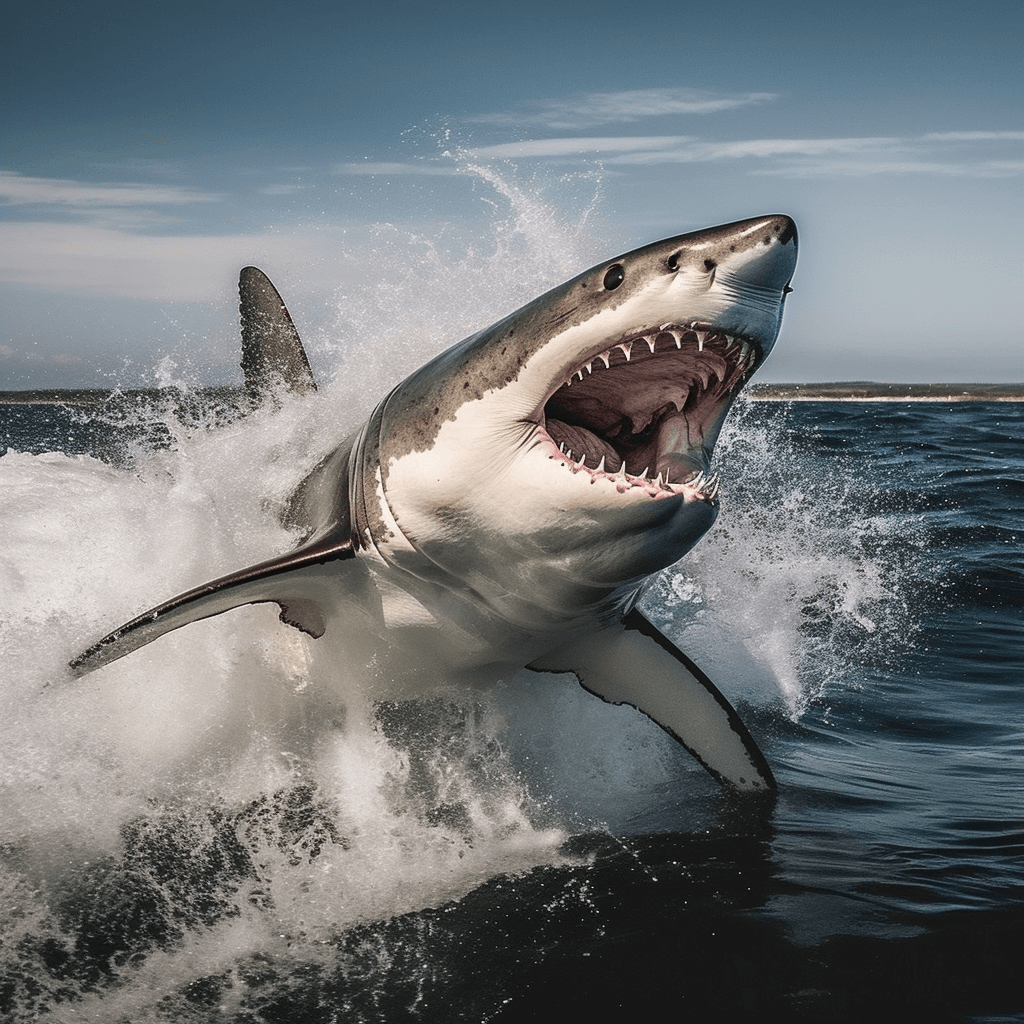
Are Great White Sharks Endangered?
Despite their status as top predators, Great White Sharks face numerous threats that have placed them in the category of a vulnerable species. Overfishing, accidental catches in fishing nets, and the illegal shark fin trade significantly impact their populations, necessitating urgent conservation measures.
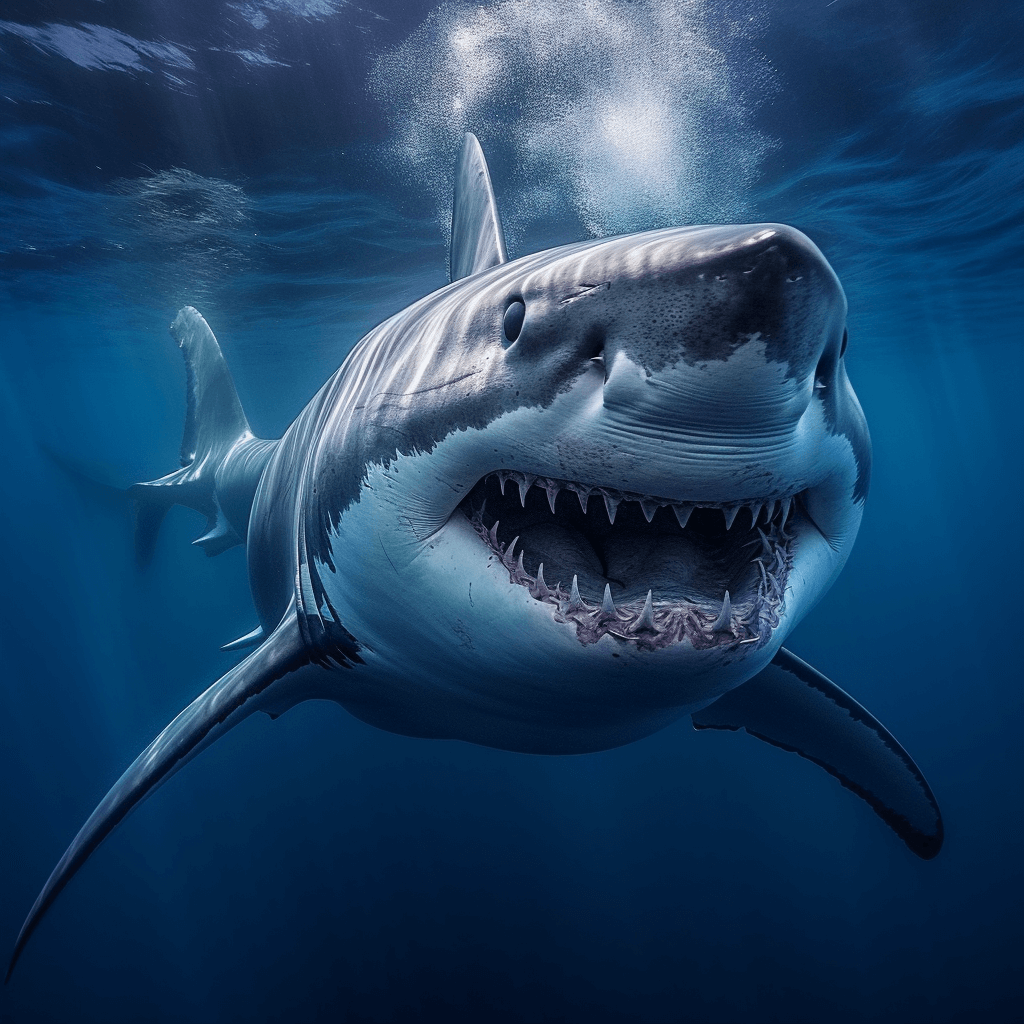
How Long Do Great White Sharks Live?
Great White Sharks have a surprisingly long lifespan, living up to 70 years or more. Determining their exact age is challenging, but research suggests that these sharks have one of the longest lifespans among shark species, contributing to the slow growth of their populations.
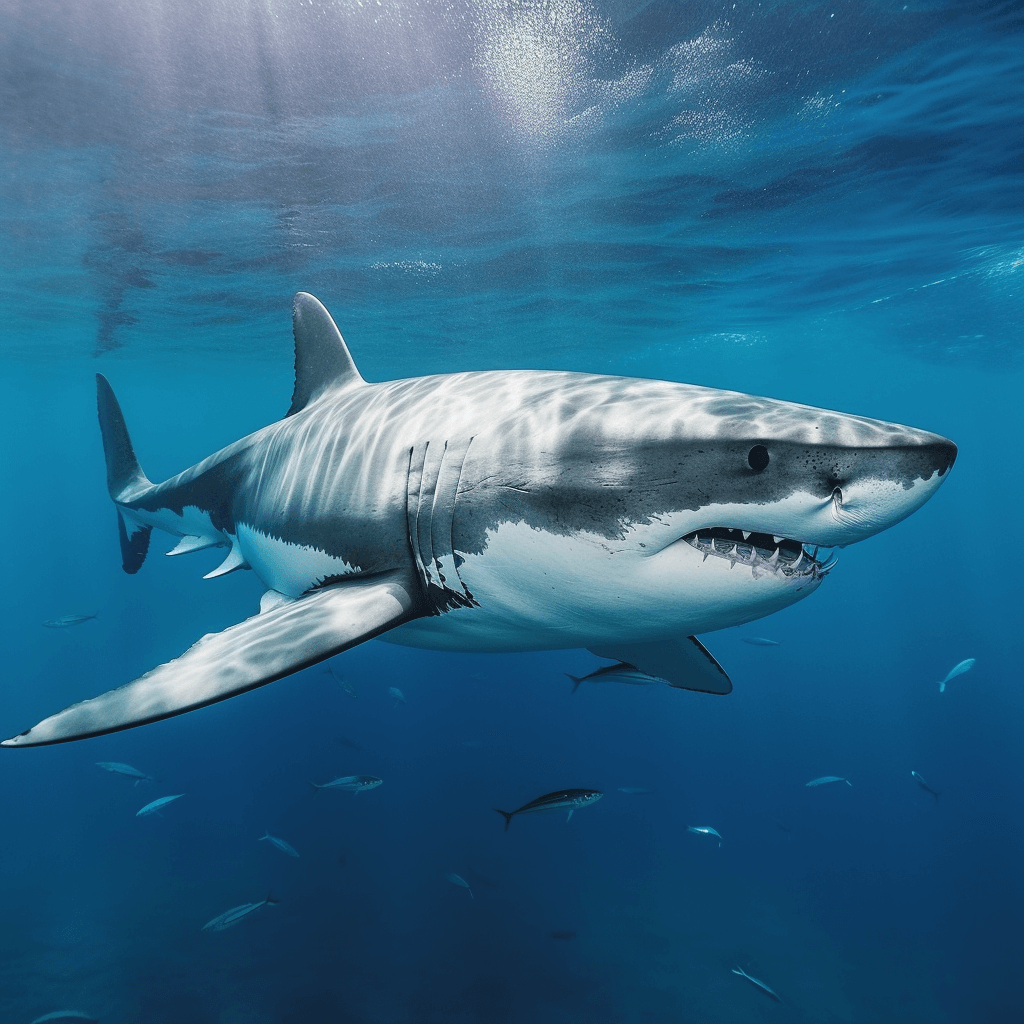
How Many Great White Sharks Are There?
Estimating the global population of Great White Sharks is complex due to their wide-ranging habitats and elusive nature. While exact numbers are unknown, it’s clear that their populations are facing challenges, with some studies indicating a decline. Ongoing research and conservation efforts are vital for their survival.
Respecting and Protecting the Great White Shark
The story of Breton, coupled with our growing understanding of Great White Sharks, underscores the need for continued research and conservation. These creatures are not just oceanic icons but vital components of the marine ecosystem. Their survival is intertwined with the health of our oceans, and as such, they deserve our respect and protection.
